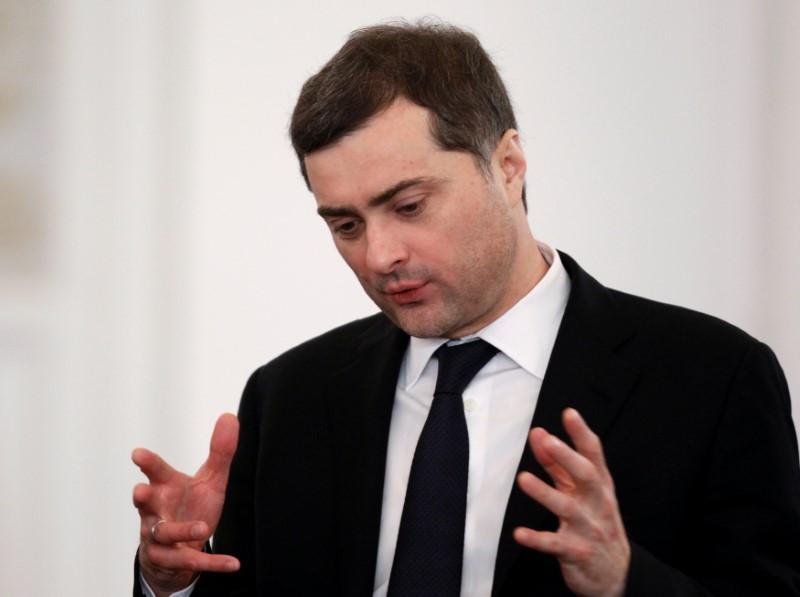MOSCOW—A top aide to Vladimir Putin decides how the pro-Moscow administration of eastern Ukraine is run and who gets what jobs there, three former rebel leaders said, challenging Kremlin denials that it calls the shots in the region.
Their comments to Reuters shed light on the role played by the secretive Vladislav Surkov, who has long been at the Russian president’s side. The Kremlin says his official role is to advise Putin on Ukraine, where the rebels are fighting government forces.
The extent of his influence and powers has not been spelled out or acknowledged by the Kremlin which casts its role in the conflict as one where it has influence but is not a protagonist.
The three men who have held senior roles in the separatist movement in eastern Ukraine have explained in detail how Surkov controls the situation on the ground via handpicked proxies who give him regular situation reports, used aides to arrange elections there, and has worked to build power structures that are responsive to Moscow’s wishes.
“Any call from Moscow was viewed as a call from the office of Lord God himself and... was implemented immediately,” recalled Alexei Alexandrov, one of the leaders of the separatist rebellion in Donetsk who has since left the area in eastern Ukraine. Two other separatists corroborated his account, but declined to be identified.






